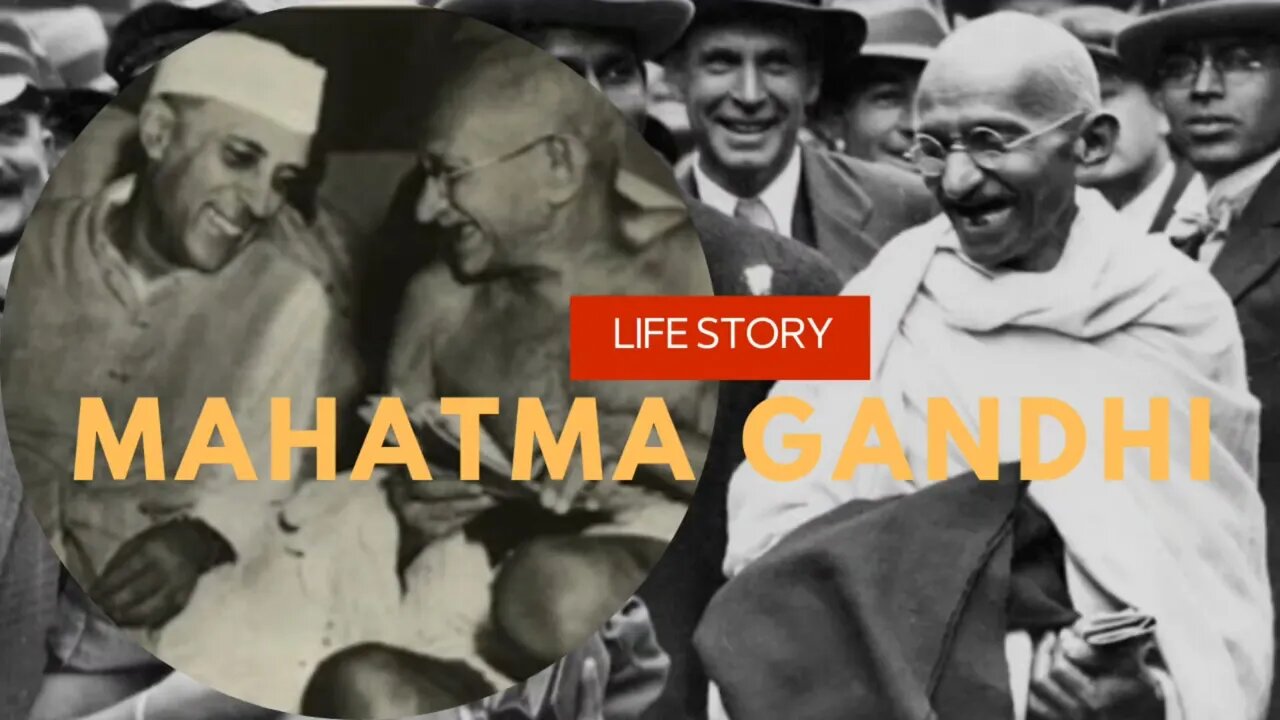Premium Only Content

Mahatma Gandhi
Peaceful way of thinking of inactive
After Partition in 1947, he kept on making progress toward harmony among Hindus and Muslims. Gandhi was shot to death in Delhi in January 1948 by a Hindu fundamentalist.
Early Life
At 19 years old, Mohandas ventured out from home to concentrate on regulation in London at the Inner Temple, one of the city's four regulation universities. After getting back to India in mid-1891, he set up a regulation practice in Bombay, however met with little achievement. He before long acknowledged a situation with an Indian firm that sent him to its office in South Africa. Alongside his significant other, Kasturbai, and their youngsters, Gandhi stayed in South Africa for almost 20 years.
Gandhi was horrified by the segregation he encountered as an Indian outsider in South Africa. That train venture filled in as a defining moment for Gandhi, and he before long started creating and showing the idea an of satyagraha , or detached obstruction, as a method of non participation with specialists.
The Birth of Passive Resistance
In 1906, after the Transvaal government passed a law in regards to the enrollment of its Indian populace, Gandhi drove a mission of common noncompliance that would keep going for the following eight years. At long last, under tension from the British and Indian legislatures, the public authority of South Africa acknowledged a trade off haggled by Gandhi and General Jan Christian Smuts, which included significant concessions, for example, the acknowledgment of Indian relationships and the nullification of the current survey charge for Indians. In July 1914, Gandhi passed on South Africa to get back to India. As a feature of his peaceful non participation crusade for home rule, Gandhi focused on the significance of monetary freedom for India.
Head of a Movement
He ceased from dynamic cooperation in legislative issues for the following quite a long while, yet in 1930 sent off another common noncompliance crusade against the provincial government's duty on salt, which significantly impacted Indian's most unfortunate residents. In 1931, after British specialists made a few concessions, Gandhi again canceled the obstruction development and consented to address the Congress Party at the Round Table Conference in London.
-
 DVR
DVR
BonginoReport
4 hours agoFDA Approves First Step to Cheating Death - Early Edition With Evita (Ep.167) - 03/25/2025
49.5K75 -
![🔴[LIVE TRADING] Stocks Are Ready To SQUEEZE!!! || The MK Show](https://1a-1791.com/video/fww1/6e/s8/1/I/4/-/v/I4-vy.0kob-small-The-MK-Show-Mar.-25th.jpg) LIVE
LIVE
Matt Kohrs
10 hours ago🔴[LIVE TRADING] Stocks Are Ready To SQUEEZE!!! || The MK Show
1,355 watching -
 LIVE
LIVE
Wendy Bell Radio
5 hours agoMADE IN AMERICA Is Back!
9,204 watching -
 LIVE
LIVE
Randi Hipper
35 minutes agoCRITICAL BITCOIN LEGISLATION SIGNED INTO LAW! FULL EXPLANATION HERE
82 watching -
 DVR
DVR
Dear America
10 hours agoGovernment Official ARRESTED For Fake Hate Crime! + Tesla Sees LARGEST Single Day Stock Increase!
11.2K4 -
 1:22:26
1:22:26
JULIE GREEN MINISTRIES
3 hours agoLIVE WITH JULIE
88.6K185 -
 1:26:04
1:26:04
Game On!
17 hours ago $2.32 earnedWe need to talk about the 2025 NFL draft!
30.1K2 -
 LIVE
LIVE
2 MIKES LIVE
1 hour agoTHE MIKE SCHWARTZ SHOW with DR. MICHAEL J SCHWARTZ 03-25-2025
130 watching -
 29:43
29:43
CatfishedOnline
18 hours agoMan Catfished By 29 Year Old Adult Entertainer In Romance Scam!
40.8K17 -
 14:31
14:31
ThinkStory
21 hours agoTop 10 SEVERANCE Theories That Will Have You Praising Kier!
26.4K16